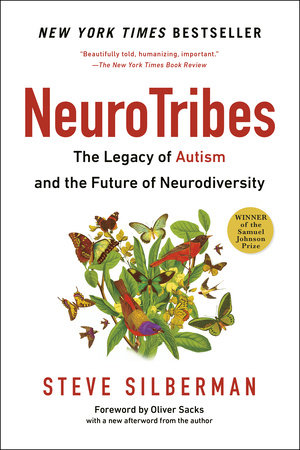TOPIC
Habits of Mind & problem solvingbooks
Below are the best books we could find on Habits of Mind and problem solving.
FILTER
CLEAR ALL
BY TOPIC
BY TEACHER
BY TYPE
FILTER

TOPIC
- Emotional and Mental Health (8)
- Neurodiversity (8)
- Self-Development (8)
- Negative Self-Talk (8)
- Transformation (7)
- Self-Discovery (7)
- Peak Performance (6)
- Problem Solving (6)
- Confidence (6)
- Entrepreneurship (6)
- Stoicism (6)
- Self-Actualization (6)
- Resilience (6)
- Courage (6)
- Spiritual Growth (5)
- Self-Control (5)
- Decision Making (5)
- Happiness (5)
- Grit (5)
- Self-Reflection Practices (5)
- Cognitive Behavioral Therapy (5)
- Moral Philosophy (4)
- Self-Limiting Beliefs (4)
- ADD/ADHD (4)
- Positive Self-Talk (4)
- Relationship Challenges (4)
- Mindfulness Practices (4)
- Imagination and Creativity (4)
- Human Potential (4)
- Young Adult Well-Being (3)
- Creative Well-Being (3)
- Time Management (3)
- Connection (3)
- Mind-Body Connection (3)
- Willpower (3)
- Positive Thinking (3)
- Positive Psychology (3)
- Leadership (3)
- Autism (3)
- Self-Realization (3)
- Self-Mastery (3)
- Search for Purpose (3)
- Neuroscience (3)
- Inner Strengths (3)
- Inner Peace (3)
- Communication Skills (3)
- Anxiety (3)
- Disabled Well-Being (2)
- Learning Styles (2)
- Romantic Relationships (2)
- Inner Life (2)
- Identity (2)
- Relationship with Time (2)
- Integrity (2)
- Mindfulness (2)
- Psychology (2)
- Access to Education (2)
- Perception (2)
- Affirmations (2)
- Emotional Intelligence (EQ) (2)
- Values (2)
- Authenticity (2)
- Empowerment (2)
- Endurance (2)
- Collaboration (2)
- Activism/Service (2)
- Stress Management (2)
- Spiritual Practices (2)
- Sleep (2)
- Self-Esteem (2)
- Ritual (2)
- Relationship with Money (2)
- Manifestation (2)
- Finding Meaning (2)
- Life Challenges (2)
- Joy (2)
- Illness and Injury (2)
- Faith (2)
- Passion (2)
- Children’s Well-Being (2)
- Inspiration (1)
- Performance Anxiety (1)
- Imposter Syndrome (1)
- Regret (1)
- Unfulfilled Career (1)
- Performance Pressure (1)
- Physical Health (1)
- Cross-Cultural Dynamics (1)
- Self-Acceptance (1)
- Highly Sensitive People (1)
- Belonging (1)
- Women’s Well-Being (1)
- Spiritual Healing (1)
- Misophonia (1)
- Synesthesia (1)
- Self-Worth (1)
- Adaptability (1)
- Play (1)
- Honoring Emotion (1)
- Neuro-Linguistic Programming (1)
- Spiritual Life (1)
- Criticism and Rejection (1)
- Neuroplasticity (1)
- The Divine (1)
- Intuition (1)
- Brain Health (1)
- Optimism (1)
- Building Character (1)
- Productivity (1)
- Competition (1)
- Work Challenges (1)
- Trust (1)
- Focus (1)
- Social Justice (1)
- Personal Development (1)
- Cognitive Psychology (1)
- Work-Life Balance (1)
- Well-Being (1)
- Stress (1)
- Spiritual Quest (1)
- Spiritual Development (1)
- Social Anxiety (1)
- Setting Limits and Boundaries (1)
- Self-Healing (1)
- Rest (1)
- Self-Reckoning (1)
- Parenting (1)
- Non-Duality (1)
- Mental Health Challenges (1)
- Memory (1)
- Marriage (1)
- Letting Go (1)
- Humility (1)
- Grace (1)
- God (1)
- Fear (1)
- Enlightenment (1)
- Diet and Nutrition (1)
- Depression (1)
- Curiosity (1)
- Visualization (1)
- Consciousness (1)
- Child’s Autism (1)
- Child’s ADD/ADHD (1)
- Buddhism (1)
- Addiction (1)
FILTER

TEACHER
- Julia Cameron (2)
- Marcus Aurelius (2)
- Wayne Dyer (2)
- Adam Grant (1)
- Amy Morin (1)
- Lodro Rinzler (1)
- Oliver Sacks (1)
- Jay Shetty (1)
- Virginia Satir (1)
- Poppy Jamie (1)
- Henry Grayson (1)
- Debbie Ford (1)
- Sadhguru (1)
- Mel Robbins (1)
- David R. Hawkins (1)
- Louise Hay (1)
- Marie Forleo (1)
- Anthony de Mello (1)
- Martha Beck (1)
- Gretchen Rubin (1)
- Abraham Maslow (1)
- Andrew Weil (1)
- William James (1)
- Carol Dweck (1)
- Daniel Amen (1)
EXPLORE RELATED TOPICS
- Social Presence
- Self-Development
- Habit Formation
- Growth Mindset
- Goal Setting
- Mindfulness
- Self-Mastery
- Negative Self-Talk
- Perception
- Athlete Well-Being
- Focus
- Self-Reflection Practices
- Positive Thinking
- Self-Actualization
- Motivation
- Self-Control
- Emotional and Mental Health
- Transformation
- Happiness
- Meditation
- Neurodiversity
- Self-Limiting Beliefs
- Self-Discovery
- Stoicism
EXPLORE RELATED TEACHERS
- Howard Gardner
- Swami Mukundananda
- Brendon Burchard
- Gretchen Rubin
- Jay Shetty
-
Lodro Rinzler

There are known concerns about this teacher’s actions. Please see our Teacher Policy in the footer menu on this page for more information.
- Mel Robbins
- Richard Davidson
- Robert A. Johnson
- Jack Canfield
- Neil Pasricha
- Adam Grant
UP NEXT
Habit Formation
Want More Like This?
To continue customizing your FindCenter experience, create an account. It’s free!
Create an account to discover wisdom, save your favorite content, and connect with teachers and seekers.
Get Started
IT’S FREE
If you already have an account, please log in.







